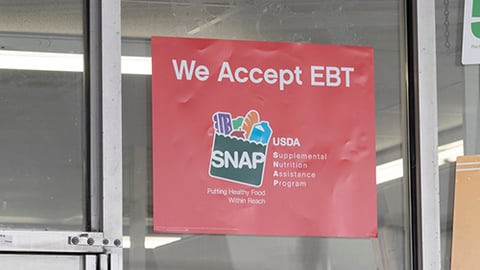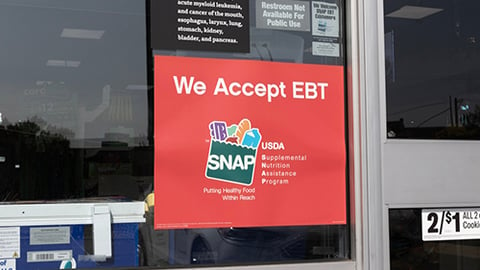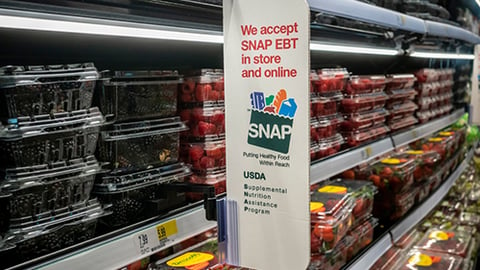SNAP Key to Bolstering Retail Food Resilience in Low-Income Areas
As major reductions to the Supplemental Nutrition Assistance Program (SNAP) are considered by federal legislators, Food Systems for the Future Institute (FSFI) surveyed retailers to determine the importance of SNAP in supporting independent grocery retailers and community nutrition, especially in low-income rural and urban locations.
The responses showed that SNAP is a significant support to indies, particularly those in low-income neighborhoods, where, according to the Food Research and Action Center (FRAC), SNAP redemptions often account for more than 50% of these retailers’ revenue, allowing their stores to provide fresh, affordable groceries in underserved areas. Any reduction in SNAP redemptions could result in lost income, potential store closures and lower food access at these businesses, making them especially vulnerable to any proposed cuts.
“SNAP plays a crucial role beyond household nutrition — it is vital for the sustainability of independent grocers and the economic resilience of the communities they serve,” said Ertharin Cousin, founder and CEO of Chicago-based FSFI.
The organization’s “Grocery Retail for All” report found that indies are important community assets, providing essential infrastructure for nutrition, employment, economic vitality and neighborhood resilience. Along with its nutritional benefits, the United States Department of Agriculture (USDA) estimates that SNAP generates up to $1.79 in economic activity for every $1 spent, directly supporting jobs in retail, distribution and agriculture.
The experiences recounted in FSFI’s interviews with indies echo recent findings from the Center for American Progress (CAP), which estimates that more than 27,000 retailers, particularly in rural counties, face higher risks from SNAP cuts.
[RELATED: Grocery Retail for All Summit Sparks Conversations to Boost Food Access, Security]
“SNAP is one of the most effective public-private partnerships in American history,” noted Stephanie Johnson, group VP of government relations at the Washington, D.C.-based National Grocers Association, the trade organization representing the independent grocery sector. “Not only is there a high return on investment for taxpayers, but SNAP is a powerful economic engine for communities of all sizes, fueling the creation of over 389,000 local jobs. As changes to SNAP continue to be debated in Congress, these positive impacts should be taken into account.”
“Not only would a cut in SNAP be devastating to my customers who live in the poorest county in the United States, it would be overwhelming to my team,” affirmed R.F. Buche, president of Wagner, S.D.-based G.F. Buche Co. “Loss of sales will no doubt be a loss of available hours and potential loss of jobs for people I consider my family. Because of our razor-thin margins, we have to keep our labor at level to be profitable so we can support our local communities. If the sales aren’t there, then labor will need to be cut. Cutting jobs and my team’s hours in a place where jobs are extremely scarce would be devastating to all involved!”
Grocers facing lower SNAP demand often end up with higher shelf prices, lower inventory and cuts to labor hours, adversely affecting local distributors and consumer access to quality food.
“The cutting of SNAP /WIC benefits at the Sherman Park Grocery store has had a huge impact — not just on our sales, but on our customers’ access to fresh fruits and vegetables,” observed Maurice “Moe” Wince, owner of the Milwaukee community’s only full-service grocery store, which has seen a drop in sales of 48% or more, due to changes in SNAP and WIC benefits. “These fresh produce and affordable groceries are no longer making it into local households — many with children already facing obesity, heart disease, hypertension and other health challenges. It’s extremely important for us — as a grocery store, as a community, as a state and as a government — to continue providing access to healthy foods and nutrition. These are investments in our future.”
To further amplify grocers’ voices and increase public understanding of SNAP’s role in bolstering food retail, FSFI will host a virtual panel discussion on June 30 from 12 PM to 1:00 PM CT. The webinar will include insights from independents and industry experts, spotlighting the operational realities in regard to food access in underserved communities.






